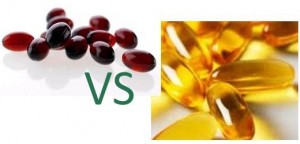
Yet another study has confirmed Omega-3’s lower inflammation. But this study was also interesting for another reason.
Nearly 1400 Finnish men participated in the study which compared blood levels of Omega-3’s with levels of C-reactive protein (CRP), a well-established marker of inflammation.
Not surprisingly, the study found that the higher the men’s levels of Omega-3, the lower the levels of CRP and therefore inflammation.
But here’s where the study gets interesting: The researchers broke the Omega-3’s down into specific compounds and analyzed levels of several different types of Omega-3’s. They compared EPA, DHA, DPA and ALA.
DHA had the strongest effect, followed by DPA (docosapentaenoic acid). In this particular study, EPA and ALA, both Omega-3’s that have been shown to provide benefits in other studies, did not significantly lower levels of inflammation.
The study authors discuss the results in terms of consumption of fish and fish oils, recommending both as means of lowering chronic inflammation. Yet even as they do, they demonstrate one of the major drawbacks of this recommendation right within the study.
Because as part of the same study, the same men gave hair samples to be tested for mercury levels. The researchers wanted to see if the mercury that can come from eating fish or taking fish oil supplements was pro-inflammatory and therefore negating the effects of the Omega-3’s.
(It wasn’t – higher levels of mercury did not correlate with higher levels of CRP. Isn’t that a relief?)
Of course, mercury isn’t an issue at all with krill oil supplements. And studies have shown that krill oil increases the level of EPA, DHA and DPA more effeciently than fish oil. (Same increases from lower amounts).
This is why we recommend krill oil as your best source of Omega-3’s.


Is it OK to take Krill Oil and Fish Oil or is this overkill. Betsy Cavnar RN
It’s probably not necessary, but not something that would be harmful either, as long as your fish oil supplement is good quality and free from mercury.